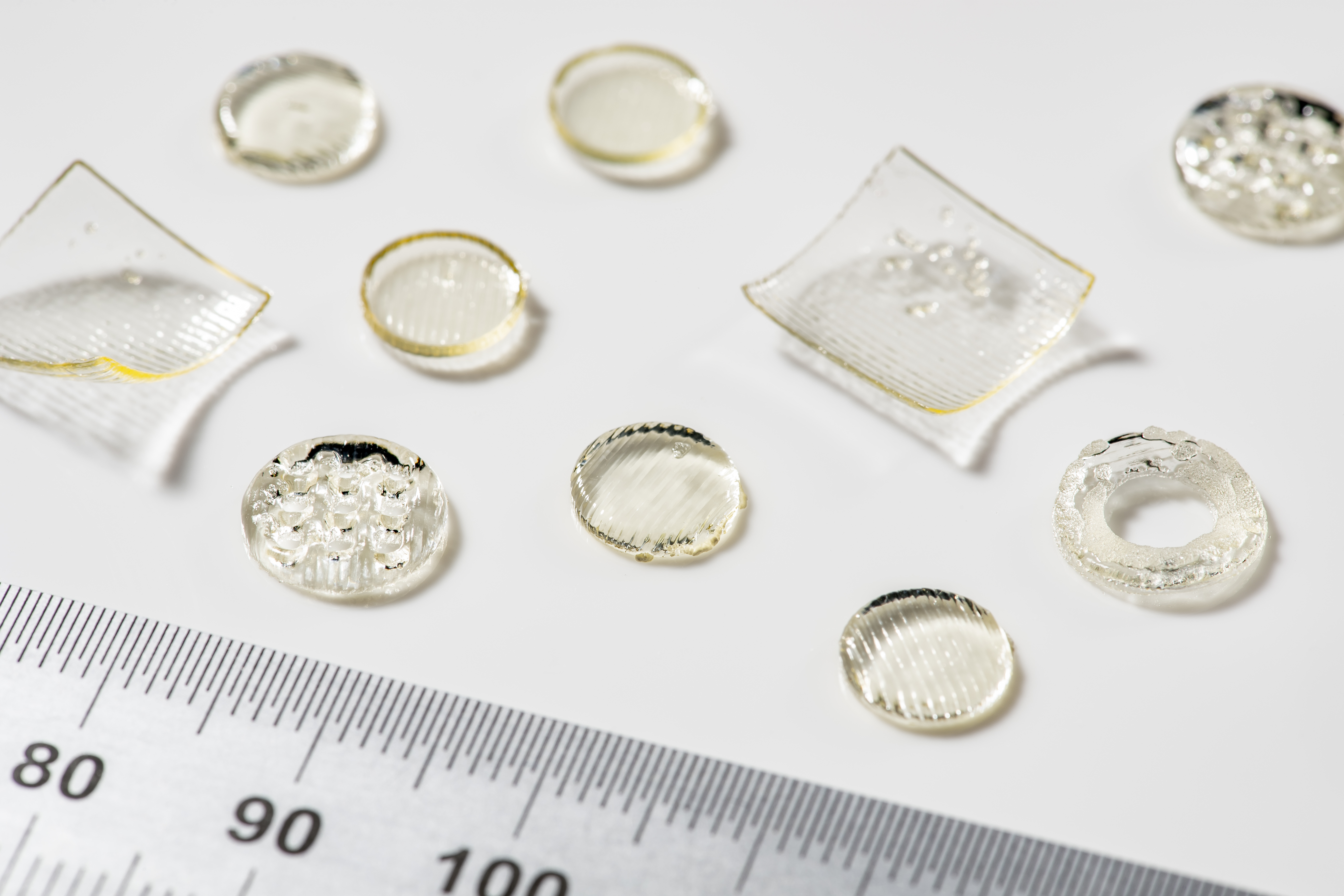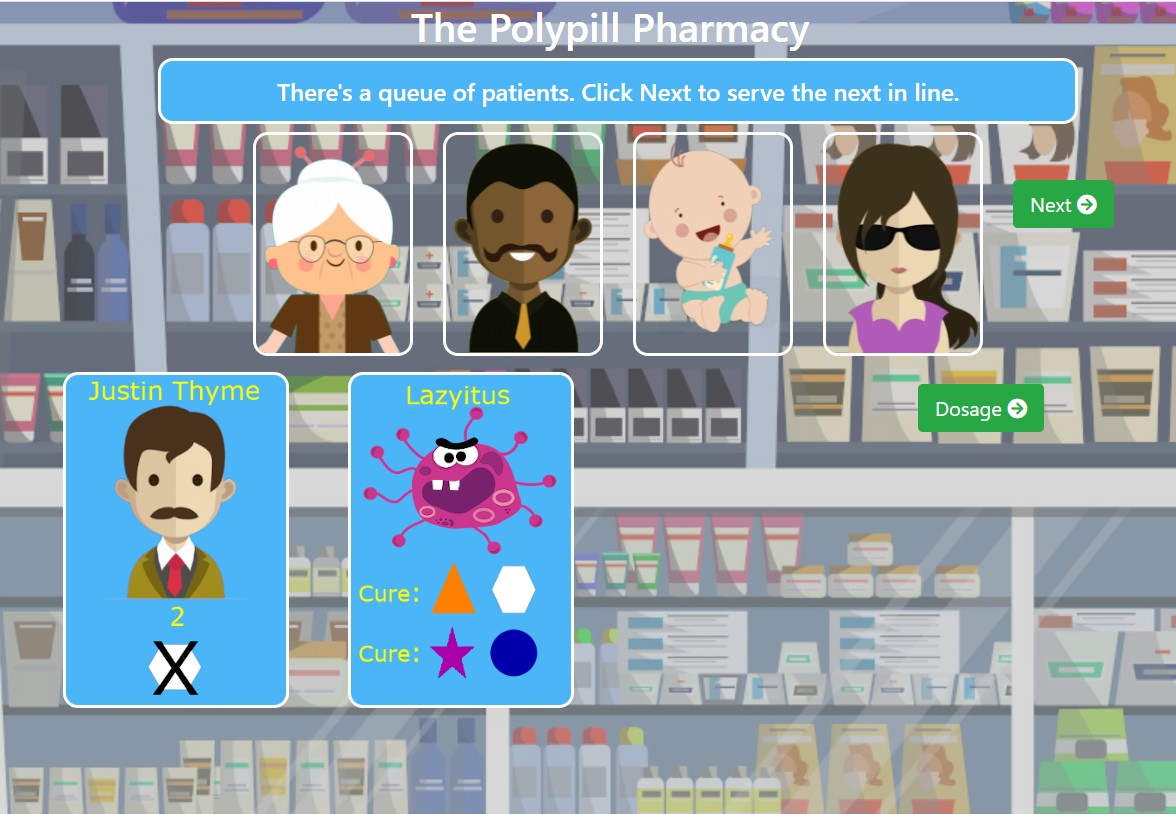Thursday, 08 July 2021
A team of researchers at the University of Nottingham are using state-of-the-art 3D print manufacturing methods to make personalised medicine a reality.
They will be showcasing their work to print a ‘wonder pill’ that can that can deliver multiple medications to the body, at the correct dose and time, at the Royal Society’s Summer Science 2021.
Professor Ricky Wildman, from the University’s Centre for Additive Manufacturing, is leading the development of the revolutionary tablets with their controlled release of prescription drugs.

“In medicine, 3D printing has already been used to create prosthetic limbs, implants and other bespoke medical devices in a precise, effective and low cost way. But we are exploring if this technology could be used to print personalised pills that are exactly right for each person that combines all the drugs they needed so they only had to take one a day.
“Each of us have physical and biological differences that make it harder for generic medicine to be effective at a standard dose. Our age, gender and size will all have an impact, while genetic variations can also make us react differently to medicines. If you are older or have a chronic condition, for example, you may take many different tablets, several times a day, for more than one disease, but they can be difficult to swallow and to remember to take at the prescribed times. It’s a staggering fact that half the people in the UK alone don’t take their medicines correctly.”
To make the technological leap, the team had to modify the printers to print multiple materials at the same time and employ three different types of 3D printing to perfect the technique: ink jet; stereolithography, which uses a computer-controlled moving laser beam, pre-programmed using CAM/CAD software; and extrusion printing which uses spools of plastic or metal filament that is forced through a heated nozzle, layer by layer, to create a 3D part.

“We have now proved that you can print pills with many types of drugs in them and release those medicines both quickly and over time. We can tailor those tablets to each individual and their specific health needs. We can design precise doses for individuals by introducing different geometries. We can also print a bespoke pill comprising layer upon layer of sections that each contain a different drug that release sequentially as required.
“3D-printed pills can be manufactured wherever and whenever they are needed which reduces shipping costs and times. This revolution in the supply chain will not only save lives, by helping people in developing countries to afford better medication and reach patients in remote or challenging areas such as conflict zones, it will also cut transport emissions, making a positive impact on climate change.”
“We have now proved that you can print pills with many types of drugs in them and release those medicines both quickly and over time. We can tailor those tablets to each individual and their specific health needs. We can design precise doses for individuals by introducing different geometries. We can also print a bespoke pill comprising layer upon layer of sections that each contain a different drug that release sequentially as required.
“3D-printed pills can be manufactured wherever and whenever they are needed which reduces shipping costs and times. This revolution in the supply chain will not only save lives, by helping people in developing countries to afford better medication and reach patients in remote or challenging areas such as conflict zones, it will also cut transport emissions, making a positive impact on climate change.”
This year a digital ‘Summer Science hub’ will replace the exhibition floor at the Royal Society’s London headquarters, instead bringing the country’s cutting-edge research to life through games, quizzes and other at-home activities, all completely free. It will also offer plenty of chances to meet the scientists who are the stars of Summer Science, through interactive workshops, short lectures and demonstrations. Live events will be running from Thursday 8-Sunday 11 July.
Each of the 19 participating groups taking part in Summer Science are selected from top universities and science institutions across the UK. Their work is framed around a big question they want the public to investigate and explore. For the University of Nottingham that is: Can we print your perfect pill?
On the Royal Society microsite, you can try your virtual hand at making personalised 3D printed pills for a queue of patients at the Polypills Pharmacy, a digital game that will test your next-generation drug manufacturing skills.

For the preview event on 7 July, Dr Laura Ruiz Cantu and Dr Yinfeng He, from the Centre for Additive Manufacturing, administered an exciting dose of the future of medication in one of a series of short online lectures taking place during the online festival.
Story credits
More information is available from Professor Ricky Wildman on Ricky.Wildman@nottingham.ac.uk or Emma Lowry, Media Relations Manager (Engineering) on +44 (0) 115 8467156 or emma.lowry@nottingham.ac.uk
Notes to editors:
About the University of Nottingham
Ranked 97 in the world and 17th in the UK by the QS World University Rankings, the University of Nottingham is a founding member of Russell Group of research-intensive universities. Studying at the University of Nottingham is a life-changing experience, and we pride ourselves on unlocking the potential of our students. We have a pioneering spirit, expressed in the vision of our founder Sir Jesse Boot, which has seen us lead the way in establishing campuses in China and Malaysia - part of a globally connected network of education, research and industrial engagement.
Nottingham was crowned Sports University of the Year by The Times and Sunday Times Good University Guide 2024 – the third time it has been given the honour since 2018 – and by the Daily Mail University Guide 2024.
The university is among the best universities in the UK for the strength of our research, positioned seventh for research power in the UK according to REF 2021. The birthplace of discoveries such as MRI and ibuprofen, our innovations transform lives and tackle global problems such as sustainable food supplies, ending modern slavery, developing greener transport, and reducing reliance on fossil fuels.
The university is a major employer and industry partner - locally and globally - and our graduates are the third most targeted by the UK's top employers, according to The Graduate Market in 2024 report by High Fliers Research. Alongside Nottingham Trent University, we lead the Universities for Nottingham initiative, a pioneering collaboration between the city’s two world-class institutions to improve levels of prosperity, opportunity, sustainability, health and wellbeing for residents in the city and region we are proud to call home. More news…